Quality Management to Drive Continuous Improvement
Compliance shouldn’t just be about checking off boxes to mark a task complete. It’s about ensuring that every process, system, and product meets and maintains the rigorous standards set by regulatory bodies to protect patient health and product efficacy.
Within life sciences organizations, compliance can often be viewed as a reaction to industry changes or audit report findings, rather than a driver for continuous improvement and long-term success. This reactive, compliance-only approach leads to gaps in quality management, increasing the risk of future non-compliance, costly regulatory actions, and reputational damage. These potential impacts undermine customer satisfaction and confidence in the products they depend on.
Managing a Compliance-Only Mindset
Organizations that focus on meeting the minimum regulatory requirements follow a compliance-only approach to quality and risk management, often leading to constant “firefighting” within their organizations. Addressing issues reactively hinders quality assurance, increasing overlooked or unforeseen risks and the potential for regulatory violations.
To be frank — a compliance-only mindset sets organizations up for failure and attracts attention away from what should be front and center: protecting health and safety with high-quality products and meeting customer expectations.
What Does Proactive Quality Management Look Like?
As expected, proactive quality management is about going beyond basic regulatory compliance and quality standards. It involves embedding quality improvement into every aspect of your operations, from initial design and development through to final product release.
This approach puts informed decision-making at the forefront, with regular risk assessments, continuous monitoring of people and processes through internal audit and other means, and the implementation of evolving industry best practices. Doing so goes beyond just achieving compliance to maintaining and expanding it. Organizations should seek to future-proof their initiatives, planning for what can and will occur in the future.
Implementing Robust Quality Management Systems (QMS)
A strong Quality Management System is the backbone of proactive quality management and regulatory compliance. Quality Management Systems provide organizations with a structured framework of policies, processes, and procedures. This ensures that all aspects of work, from new employee training to releasing a product to market, are completed in a standard, consistent, efficient, compliant, and measured way. A robust QMS provides customers and regulatory agencies with the confidence that products hitting the market are safe and efficacious and were designed, developed, tested, manufactured, and released in a controlled manner.
A well-designed QMS enables organizations to identify potential risks early, standardize business processes, and maintain comprehensive records. These records are essential for regulatory audits and presentations to potential customers seeking more information on validated products.
Leveraging Technology for Compliance
Technology is essential for life sciences organizations to maintain compliance with regulatory standards and ensure product quality. Technology-driven solutions can streamline processes, enhance data accuracy and security, and provide real-time insights into quality management. These insights make it easier to find and address potential risks or gaps before they escalate into significant issues.
Automation tools can be used to monitor critical processes continuously, ensuring that they adhere to company and regulatory standards without the need for constant manual oversight. Advanced analytics can help organizations predict and prevent compliance breaches by revealing patterns and anomalies in data. Additionally, digital platforms can centralize document management, making it easier to organize and maintain comprehensive records for review and consultation should the need arise.
Training and Competency Development
Ongoing training and competency development are essential components of proactive quality management efforts. As regulatory requirements and industry standards are constantly evolving, personnel must stay informed and knowledgeable to ensure compliance. Training programs, certifications, and workshops to upskill your team can help staff members understand GMP requirements, apply best practices, and recognize potential risks before they escalate toward a “firefighting” situation. Regularly scheduled refresher training will improve knowledge retention, reduce errors, foster continuous improvement, and keep quality at the forefront.
Investing in the continuous improvement of your employees not only strengthens organizational compliance but also develops a culture of quality planning and accountability. It’s essential to stay attuned to rapidly changing technology, approaches, and regulatory expectations and proactively implement change. Doing so increases productivity, stability, and informed decision-making, creating an environment where processes, systems, and people are always in a state of control.
Adopting a Risk-Based Approach
When quality planning and integrating new quality initiatives, establishing a risk-based approach is critical for mitigating regulatory risks in GMP and other regulated environments. Instead of treating all processes, procedures, and systems equally, this approach prioritizes efforts based on the potential impact on product quality and safety. By focusing on high-risk areas and prioritizing the tasks deemed necessary, life sciences organizations can allocate resources more effectively and reduce the likelihood of regulatory issues. A documented risk assessment should be completed to facilitate this approach and ensure proper documentation is available.
Making it Happen — the Value of a Trusted QMS Partner
Implementing and maintaining a proactive QMS can be complex, especially for smaller organizations or those with limited resources. Partnering with a trusted QMS partner like CREO can provide the expertise and support needed to navigate quality policy challenges and streamline solutions that emphasize consumer health and safety. With a proven track record in GMP compliance, CREO leverages evidence-based decision-making to design, implement, and/or optimize a QMS tailored to your organization’s unique needs.
Take the Next Step Toward GMP Compliance
Don’t wait for the next audit to drive change — take control of your compliance journey today with CREO. By adopting a proactive approach to quality management, you can safeguard your organization against regulatory risks while enhancing the overall quality of your products.
Partner with CREO to implement a tailored QMS or optimize your existing QMS to meet your organization’s unique needs and propel long-term success. Reach out to one of our quality and regulatory compliance experts to learn more about how CREO can help you overcome your compliance challenges with a tailored compliance plan.
Additionally, download the white paper, The Future of GMP Compliance, to learn more.

